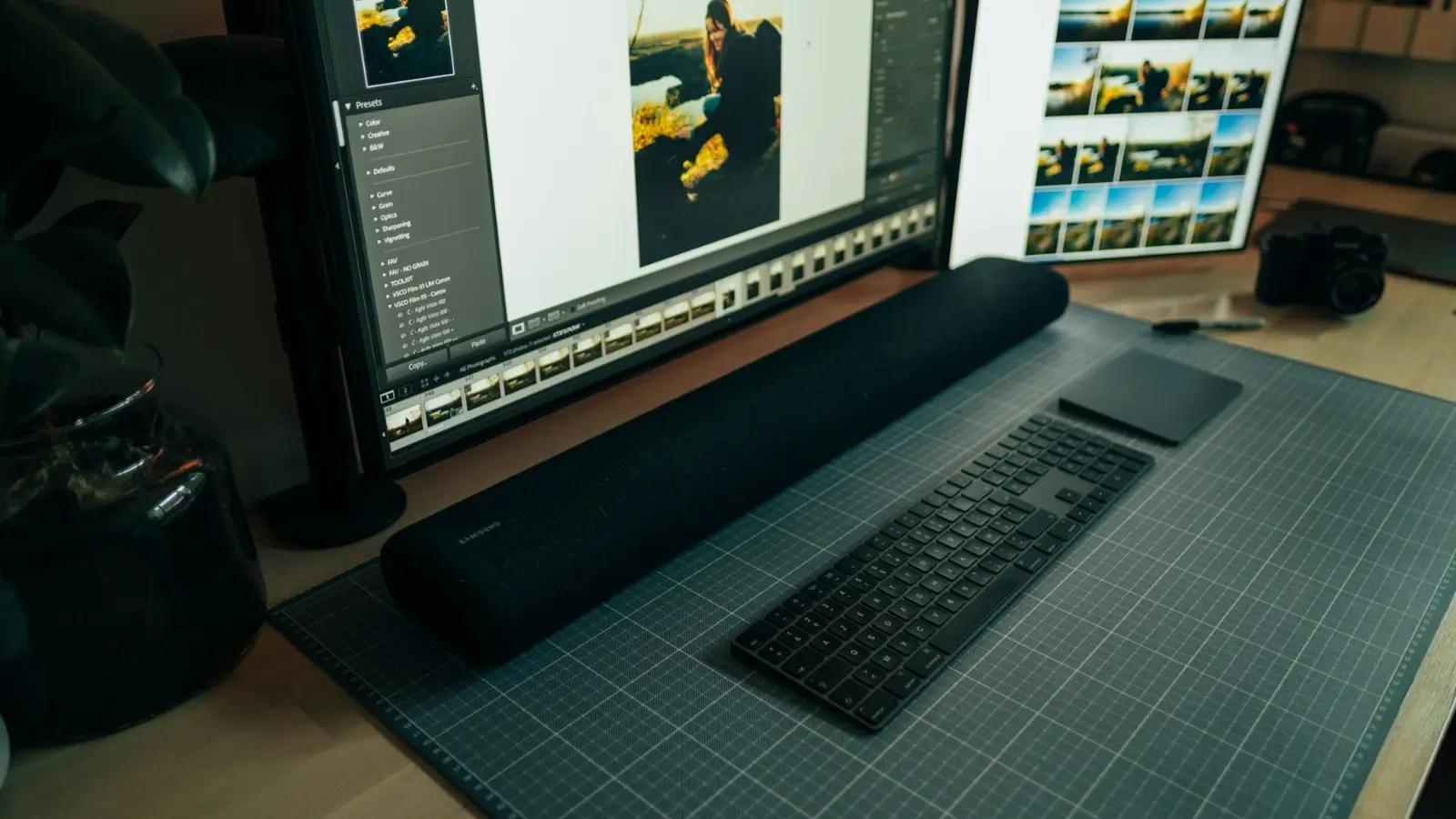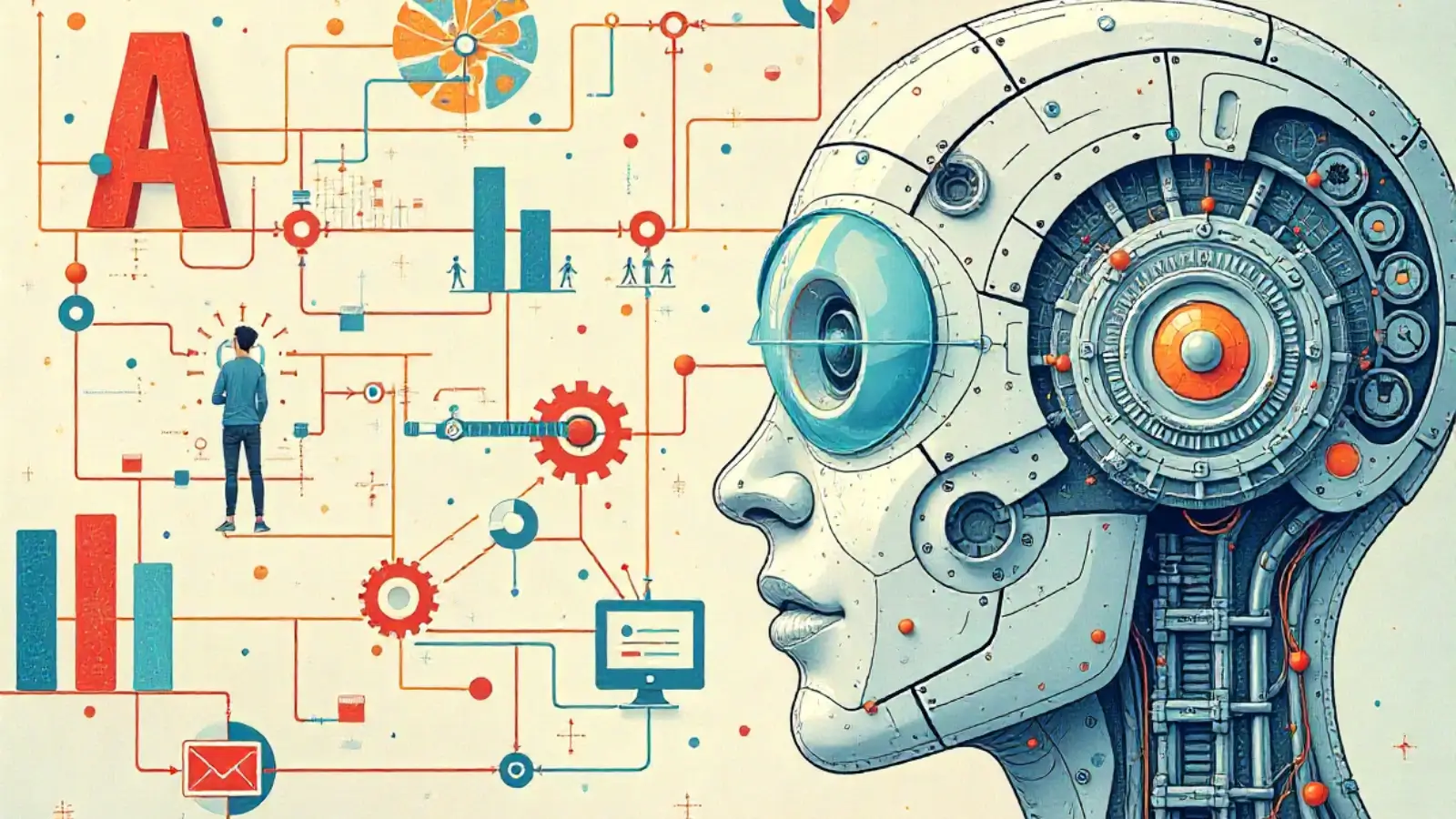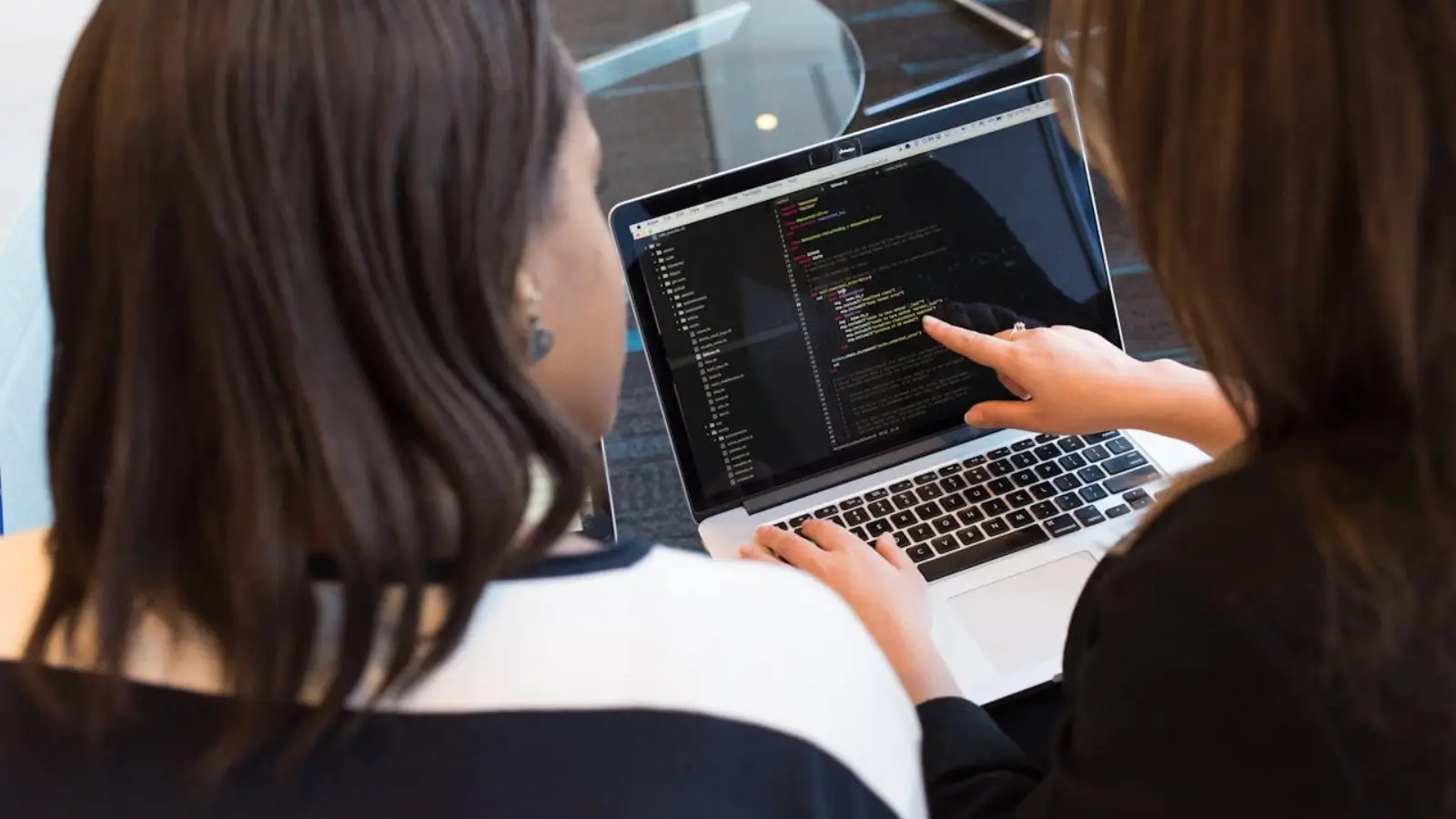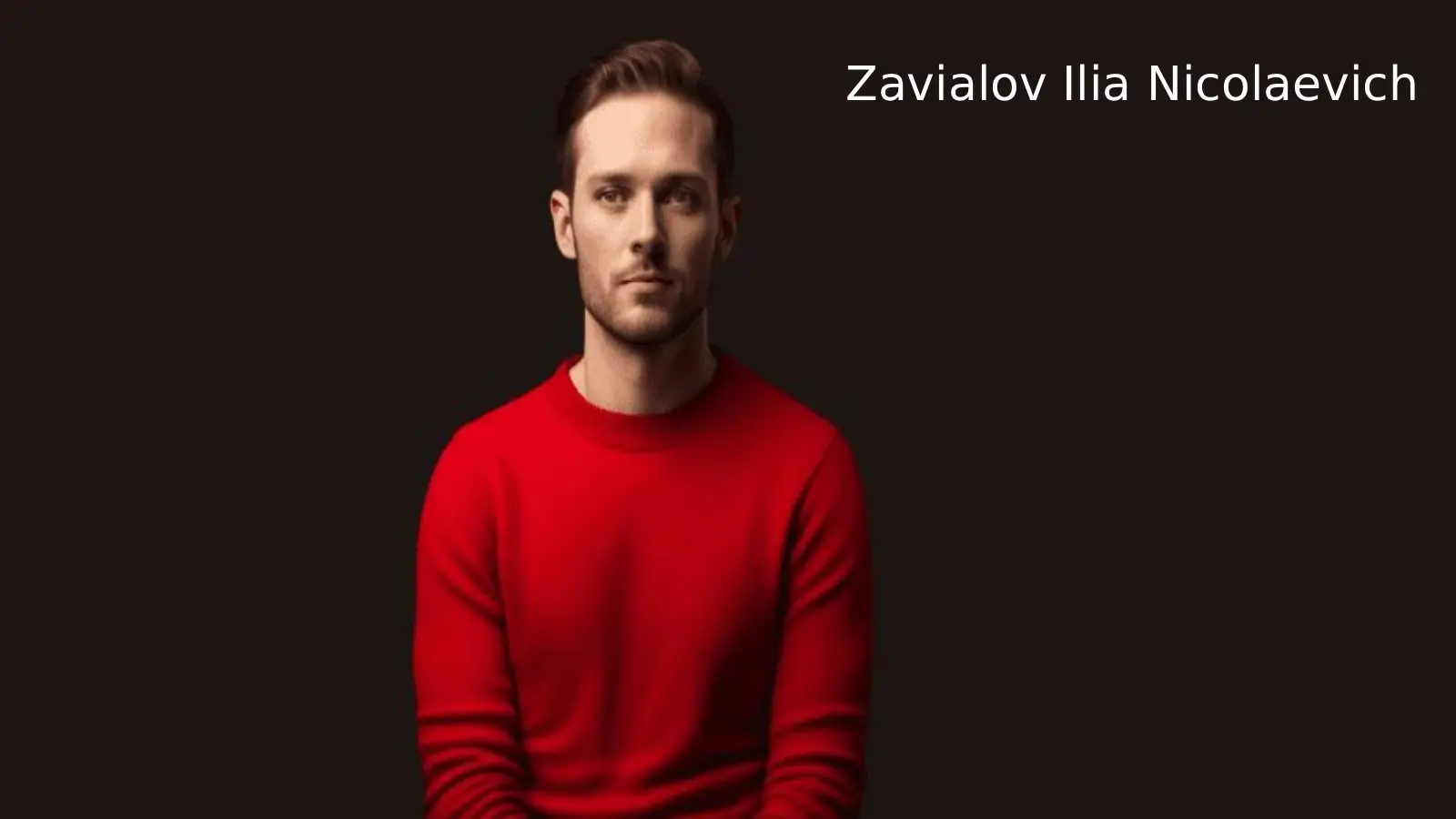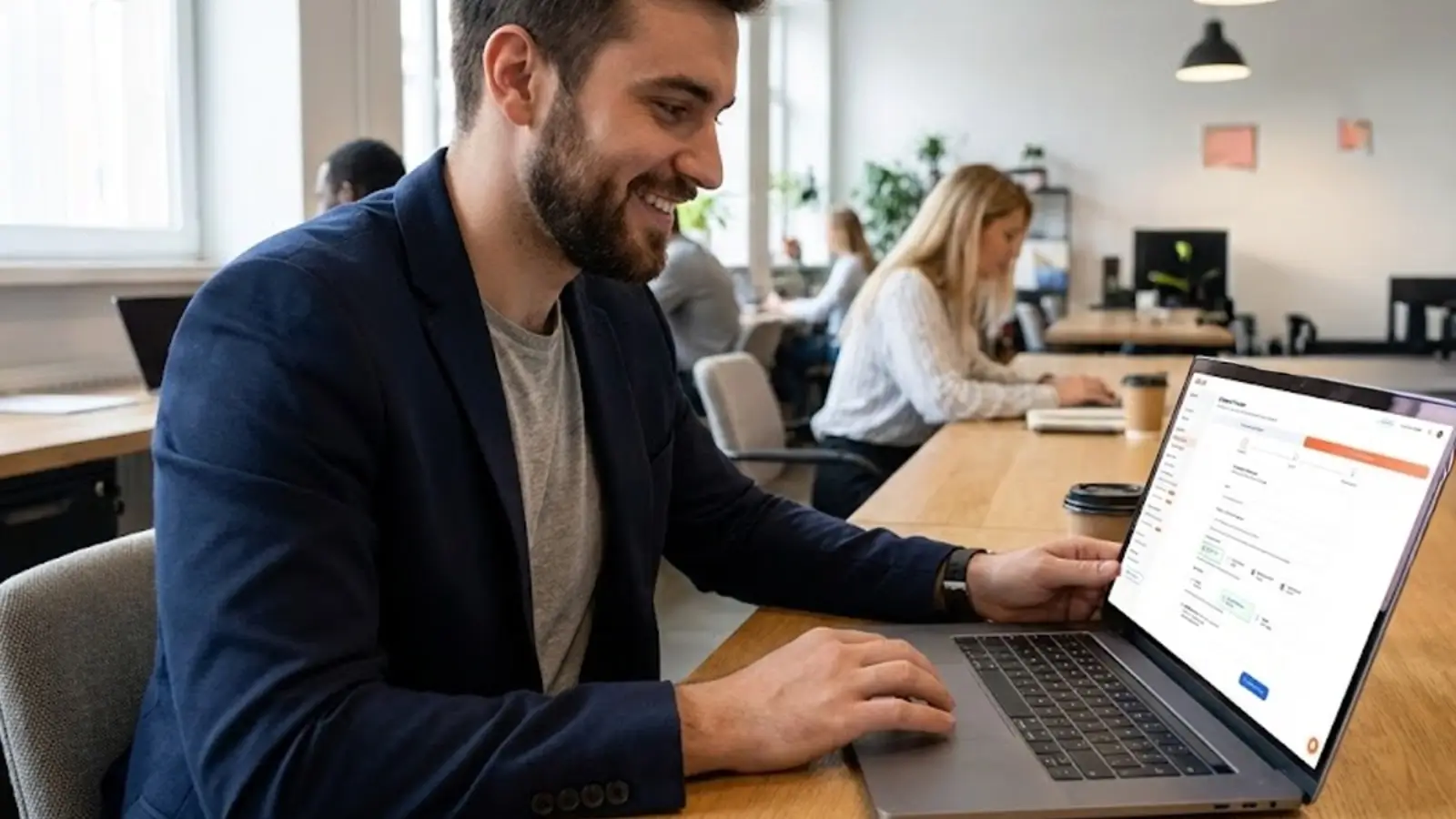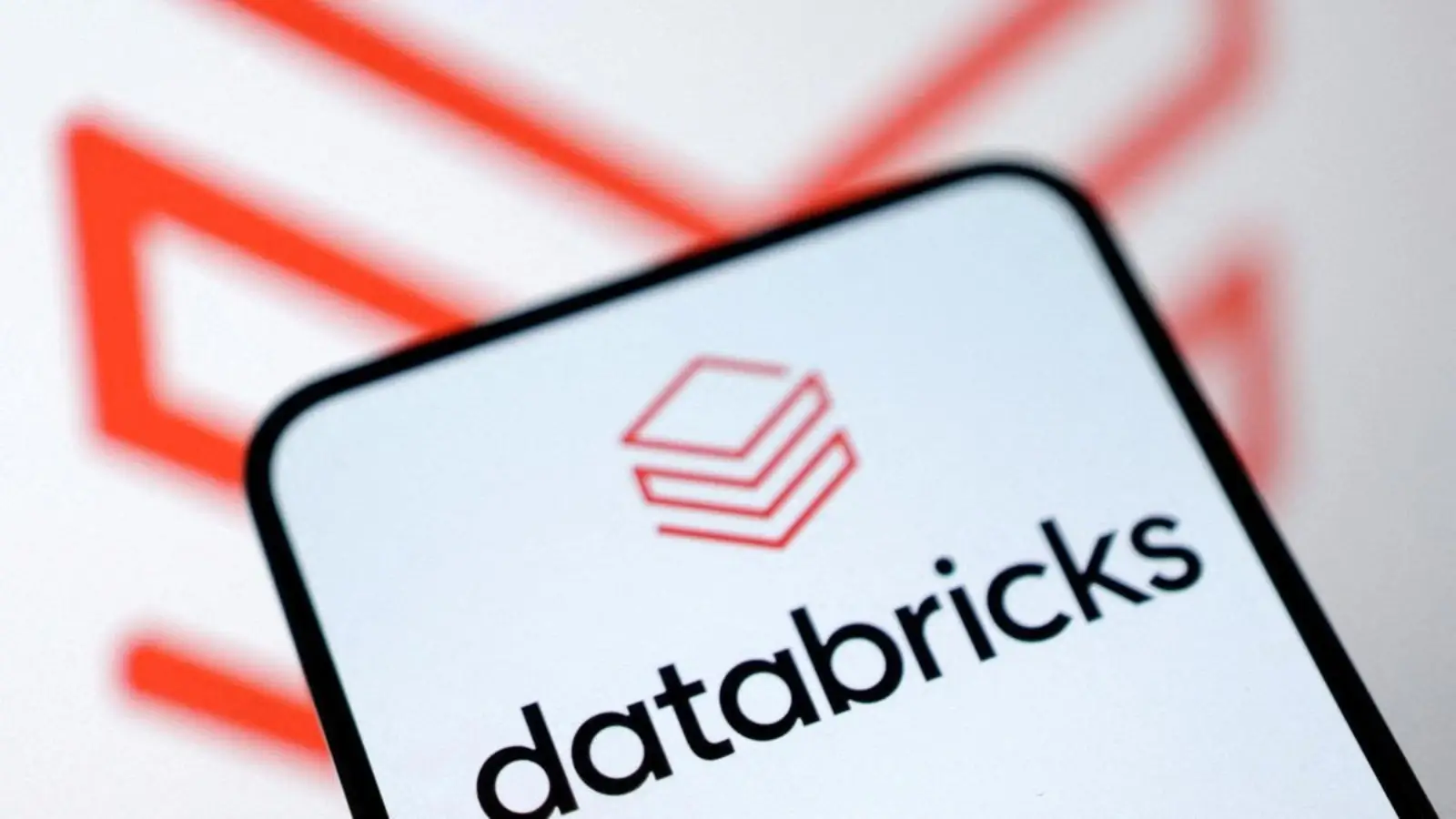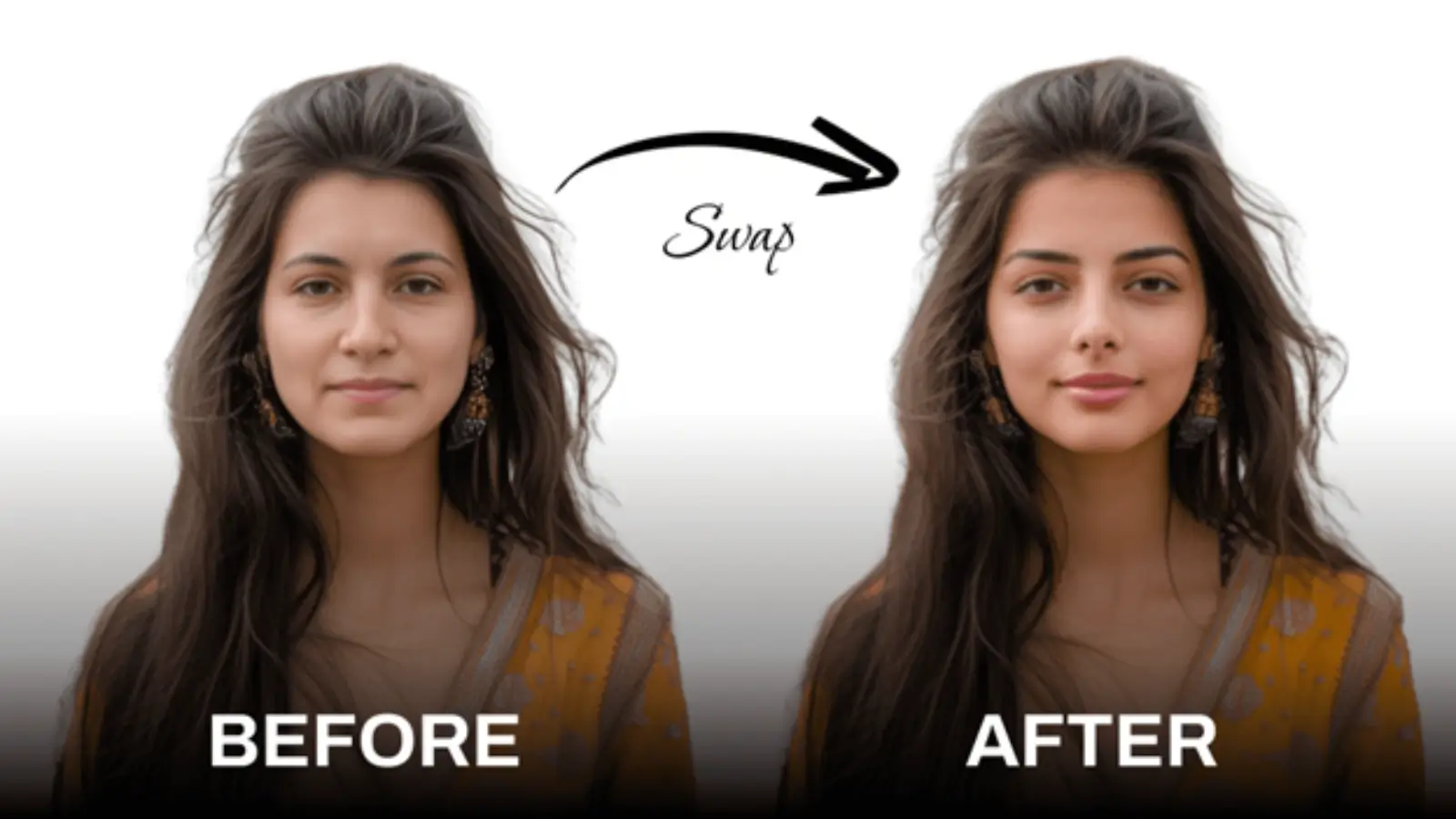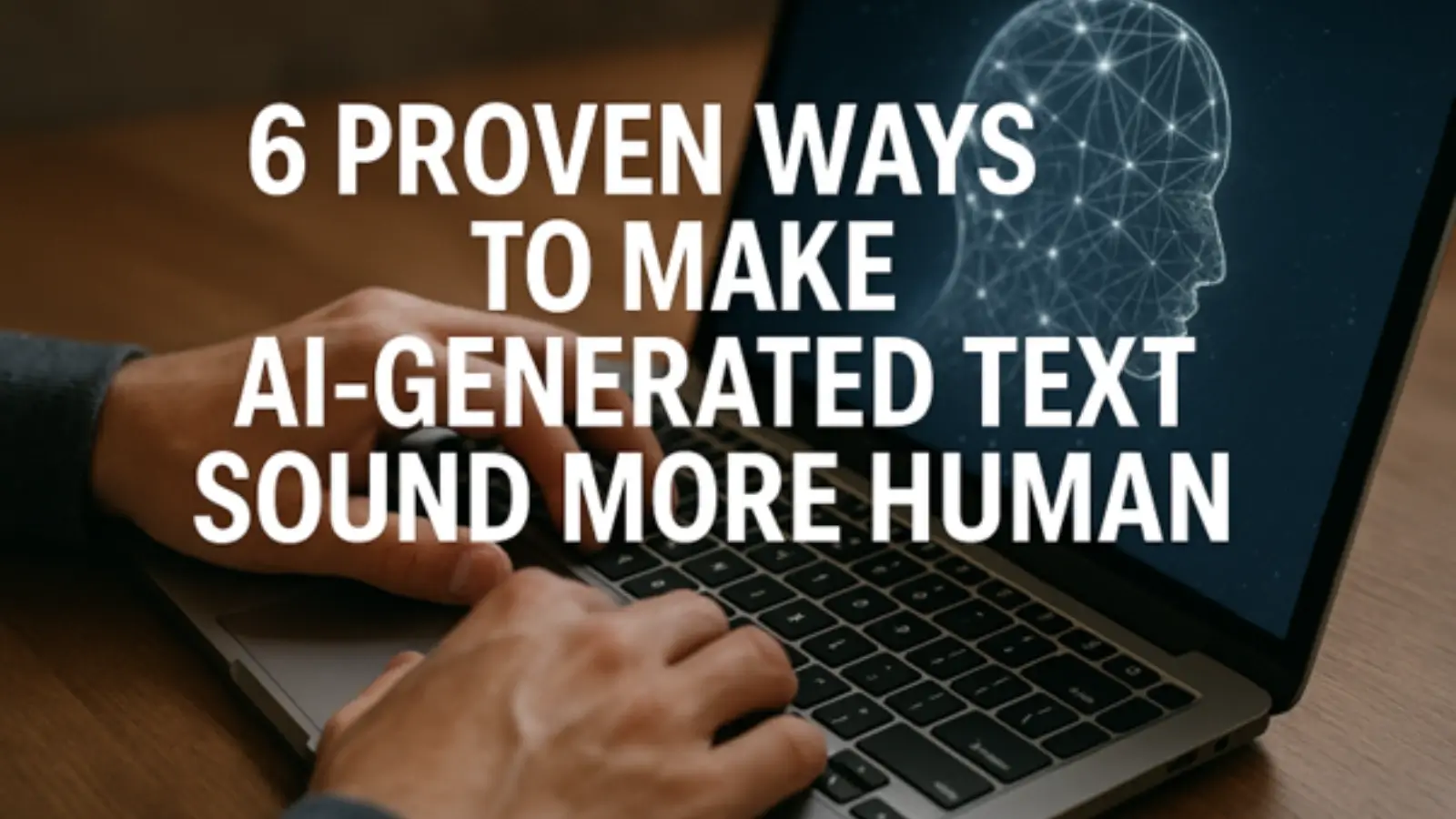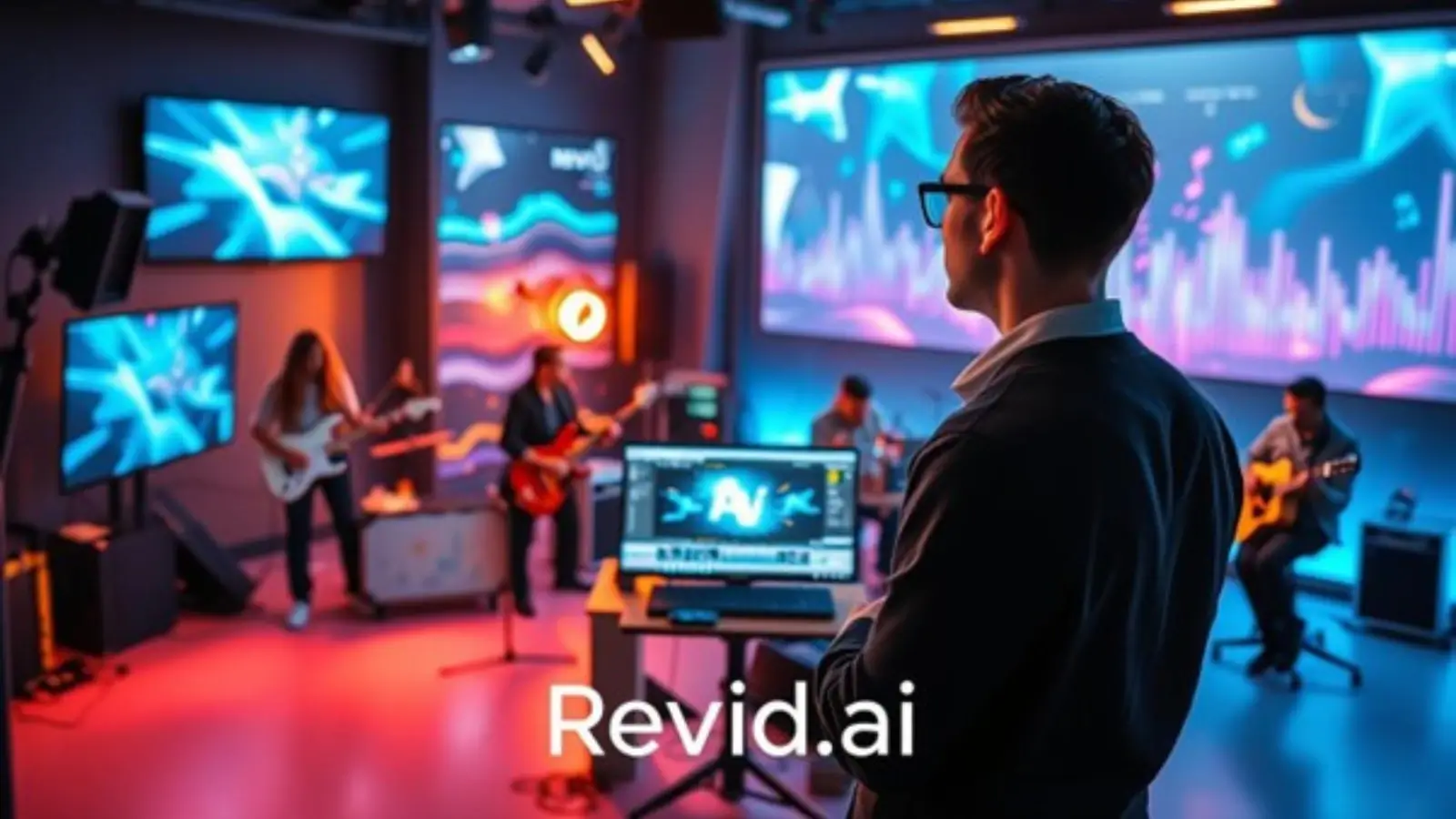Artificial Intelligence has been evolving for decades, but 2025 marks a tipping point—especially for visual content. From personalized marketing to viral TikToks, AI-generated videos from static images have not only become mainstream but are now essential for creators, educators, and businesses alike. This article dives deep into how image to video AI became the cornerstone of modern content strategy, and why platforms like ImageToVideo AI are leading this creative revolution.
1) Why 2025 Is the Breakthrough Year for Image to Video AI
The rapid transformation in AI video technology this year isn’t accidental. It's the result of several converging forces:
a. The Rise of Multimodal AI Models
In 2024, we witnessed the expansion of large language models into multimodal territory—AI systems that understand and generate not just text but also images, videos, and audio. In 2025, these models matured significantly. Now, they can seamlessly turn a single static photo into a dynamic video sequence with accurate motion, voiceovers, background music, and even storytelling.
b. Explosion of Short-Form Content
Short-form video content dominates platforms like TikTok, Instagram Reels, and YouTube Shorts. Users crave fast, visual, and emotionally engaging content. With AI making video generation possible in minutes, creators are leaning on image to video AI tools to produce eye-catching reels from minimal input.
c. Demand for Scalable, Cost-Effective Content
Businesses are under pressure to create more content in less time. Traditional video production is expensive and slow. In contrast, AI video generators dramatically reduce cost and turnaround time. With tools like ImageToVideoAI.io, brands can generate product demos, explainer videos, or viral social content in minutes—without hiring editors or actors.
d. Democratization of Creative Tools
What was once exclusive to Hollywood or marketing agencies is now accessible to anyone with a smartphone or laptop. This democratization is powered by user-friendly interfaces, templates, and the sheer speed of AI. Everyone from indie musicians to e-commerce sellers can now produce professional-grade videos starting with a single image.
2) What Is Image to Video AI, and How Does It Work?
Image to Video AI refers to the use of artificial intelligence to create animated or realistic videos using one or more input images. These videos often include elements such as:
-
Animated motion (e.g., a character walking, dancing, or talking)
-
Scene generation (adding background, transitions, and effects)
-
Voiceover narration or music
-
Text overlays or subtitles
Here’s a simplified breakdown of how it works:
-
Input Phase: The user uploads a photo—this could be a person, product, logo, or art illustration.
-
AI Processing:
-
Facial and object recognition detect key features.
-
Motion AI maps realistic or stylized movements.
-
Scene AI adds transitions, camera panning, or visual depth.
-
Output Phase: A downloadable, editable video that feels professional and tailored to the user’s intent.
3) Why ImageToVideo AI Is the #1 Choice for Creators in 2025
While many platforms have attempted to enter this space, ImageToVideo AI has emerged as a favorite for a simple reason: it delivers powerful features without complexity. Let’s explore what sets it apart.
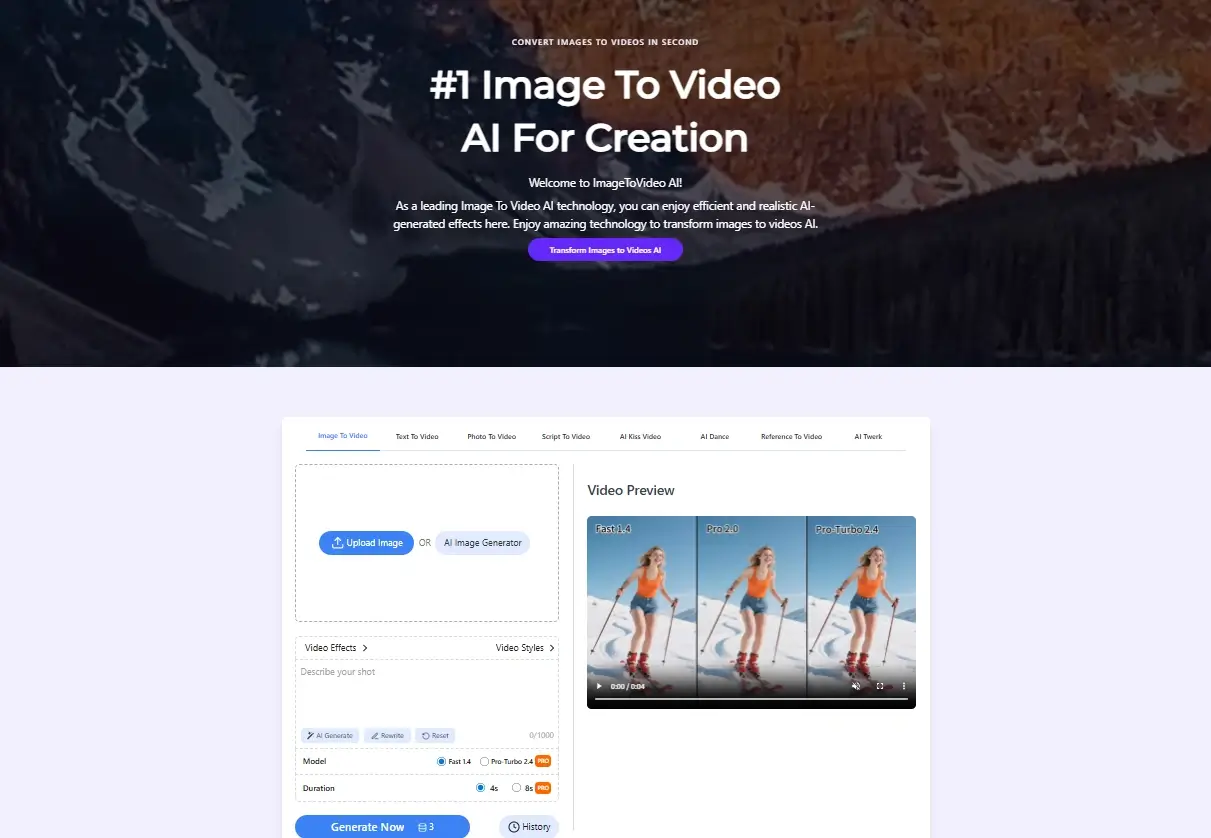
a. Realistic, High-Quality Video Outputs
ImageToVideoAI.io uses advanced rendering engines and motion synthesis models that generate videos with lifelike animation. Whether you’re making an AI character dance, speak, or move in a cinematic way—this platform captures subtle details like facial expressions, lighting, and perspective.
b. Lightning-Fast Processing
Thanks to cloud-based acceleration, videos are rendered in under 60 seconds. Compared to traditional editing tools that require hours, ImageToVideoAI.io enables users to iterate quickly and generate content at scale.
c. Free, No-Watermark Option
Unlike many competitors, ImageToVideoAI.io offers a free plan with no watermark, making it ideal for testing, social sharing, or building a portfolio. Paid plans unlock longer videos, higher resolutions (up to 4K), and advanced customization features.
d. Wide Range of AI Video Styles
From talking head avatars and dancing animations to cinematic intros and product reels, the platform supports multiple modes of video generation. You can even use it to:
-
Animate photos of people or pets
-
Create stylized marketing clips from product images
-
Transform static memes into engaging videos
-
Make AI-generated reels for Instagram, TikTok, and YouTube
e. Privacy and Security You Can Trust
In a digital world full of deepfake risks, ImageToVideoAI.io emphasizes responsible AI usage. All uploads are encrypted, and no data is used for training unless the user consents. You own your content—full stop.
4) Use Cases That Prove the Power of Image to Video AI
Let’s break down the diverse applications that are thriving thanks to this technology:
a. E-Commerce and Product Videos
Retailers can now create product showcase videos from static images. A jewelry brand, for instance, can animate a 360-degree view of a necklace using just a single photo.
b. Social Media Influencers
Influencers can generate daily content—funny, trending, or educational—from selfies or fan-submitted photos. With minimal time investment, their reach and engagement skyrocket.
c. Music Artists and Creators
Musicians can animate album covers or lyrics using AI motion tools. A boring cover image can turn into a music video visualizer in seconds.
d. Education and Training
Educators can explain concepts using AI videos generated from textbook diagrams. A biology teacher could turn a cell diagram into a narrated walkthrough with minimal effort.
e. AI-Generated Storytelling
Writers and game designers are using image to video AI to visualize character movements, emotional expressions, and fantasy worlds—enhancing narratives without the cost of 3D animation studios.
5) The Road Ahead: Where AI Video Tech Is Headed
The future of image to video AI is bright—and evolving fast. Here are some trends to expect by late 2025 and beyond:
a. Interactive AI Videos
Expect platforms like ImageToVideoAI.io to support clickable hotspots, interactive story branches, and in-video personalization, allowing viewers to engage actively with the content.
b. Voice Cloning & Multilingual AI
Video AI tools will soon support custom voiceovers using your voice or any desired tone. Expect multilingual outputs too, where a single video can be auto-dubbed in 10+ languages.
c. Full-Length AI Movies
We're getting closer to full films generated with AI, where every scene, character, and movement is synthesized from basic inputs like a script and a few concept images.
d. Integration with AR and VR
AI-generated videos will soon become 3D assets for AR filters, VR experiences, and game design—enabling immersive storytelling that starts with a simple image.
6) How to Use ImageToVideo AI in 3 Easy Steps
Ready to try it yourself? Here’s how:
Step 1: Upload Your Image
Visit ImageToVideo AI and upload a photo from your device. You can also use demo assets if you're just testing.
Step 2: Choose a Style and Motion
Pick from available templates: talking avatars, cinematic motion, dance moves, and more. You can preview the effect before generation.
Step 3: Generate and Download
Hit “Generate Video” and wait a few seconds. Your video will be ready to preview and download—with no watermarks if you're using the free plan.
Conclusion: Don’t Just Watch the Future—Create It
2025 is more than just a year of evolution for content; it’s a revolution. Image to video AI is giving individuals the power to animate, express, educate, and inspire at a level never before imagined—and it's only getting better. Whether you're a solopreneur, influencer, educator, or marketer, the time to embrace this technology is now.
And if you're wondering where to start—ImageToVideo AI is your best bet. It’s not just another tool; it’s a creative partner built for speed, style, and storytelling.
So why wait?
Upload an image. Generate a video. Watch your idea come alive.

